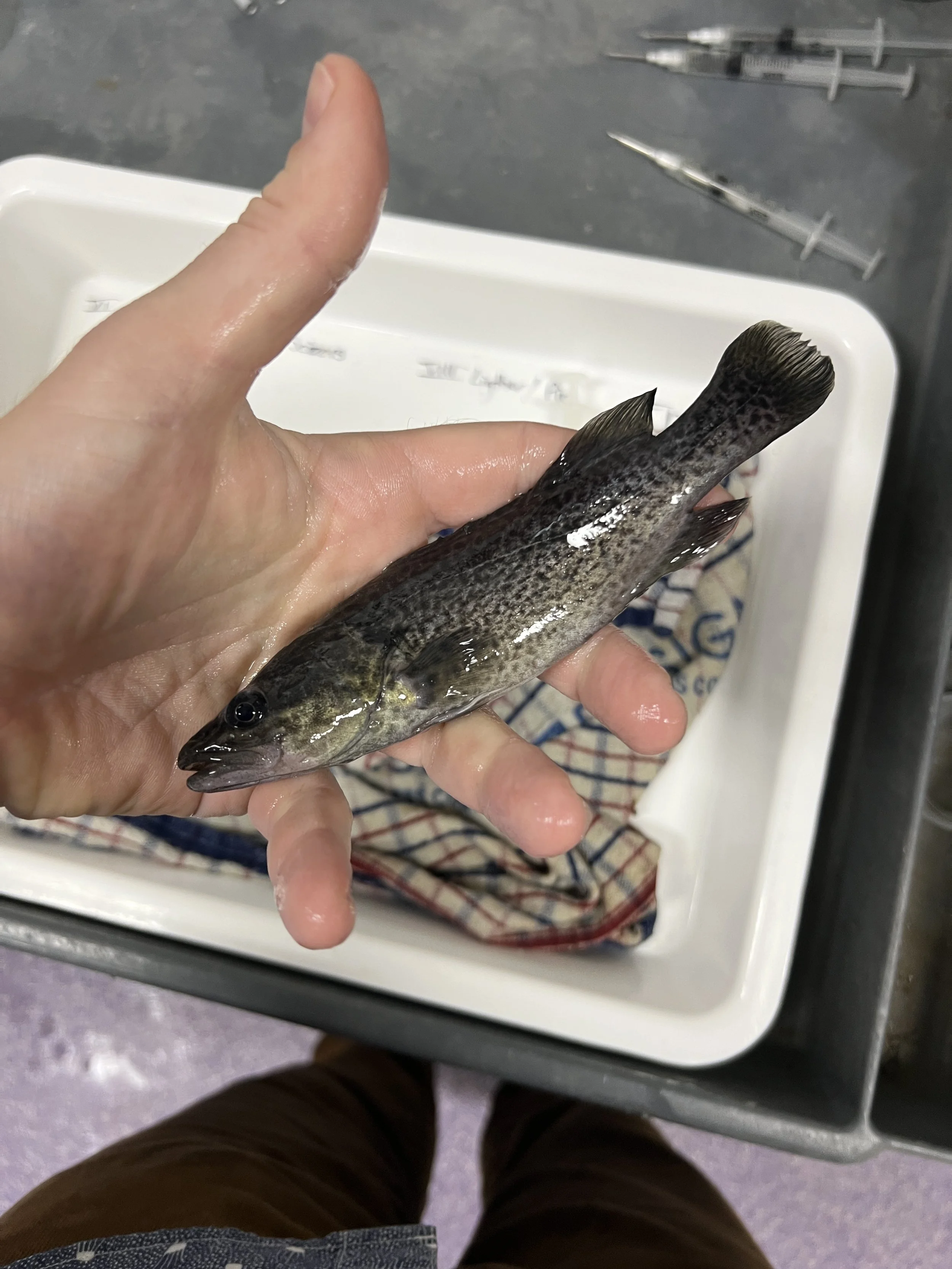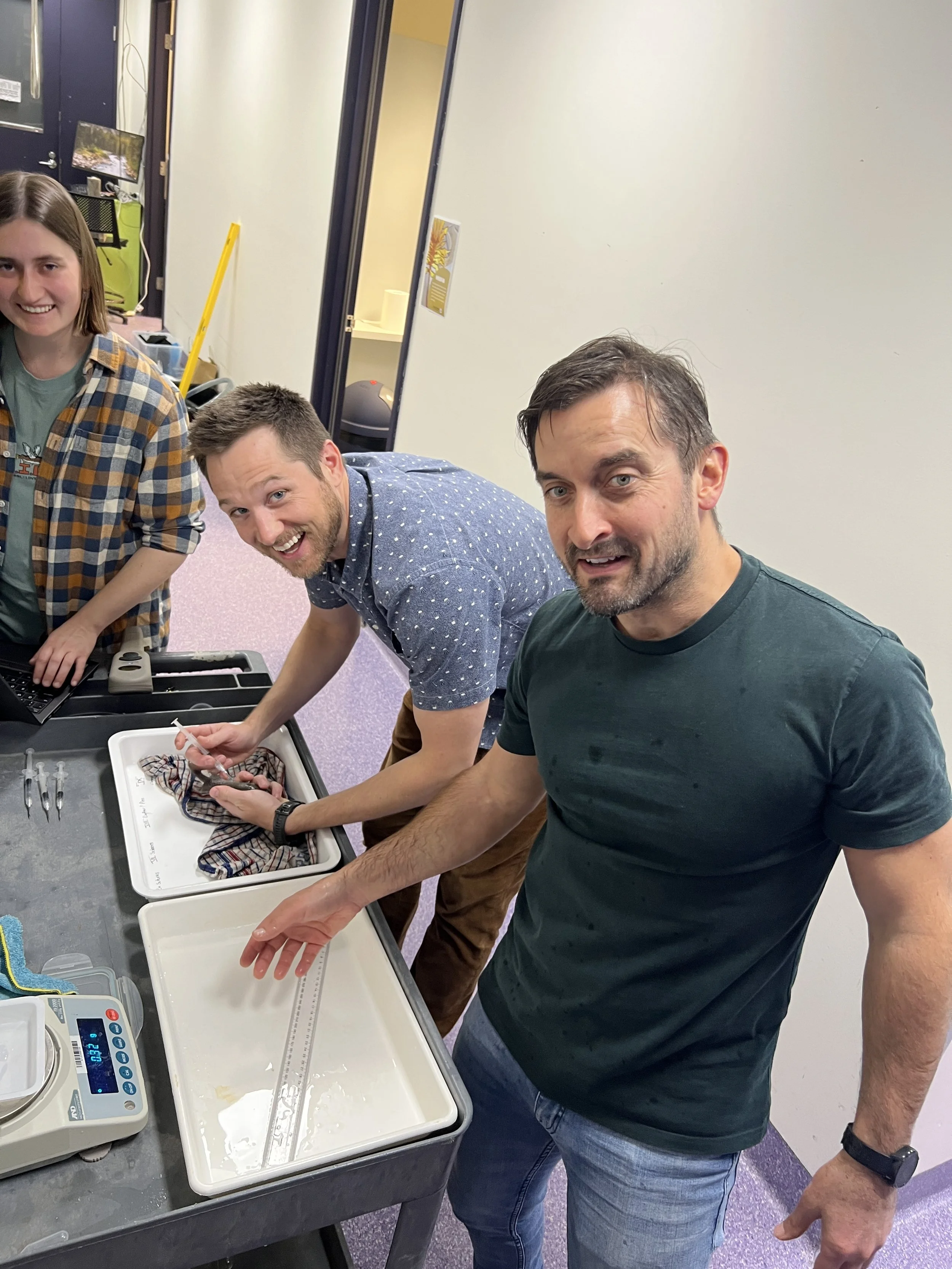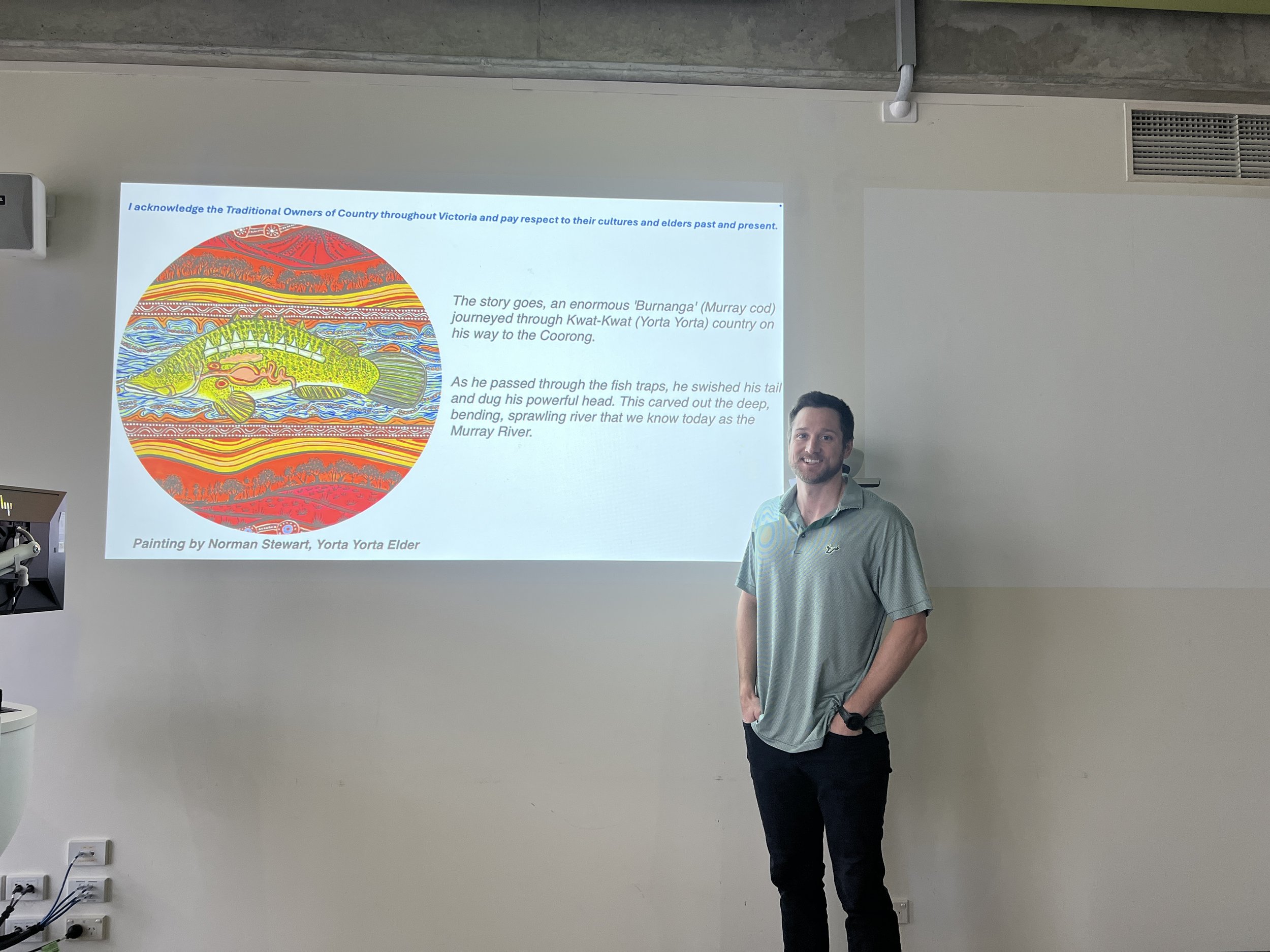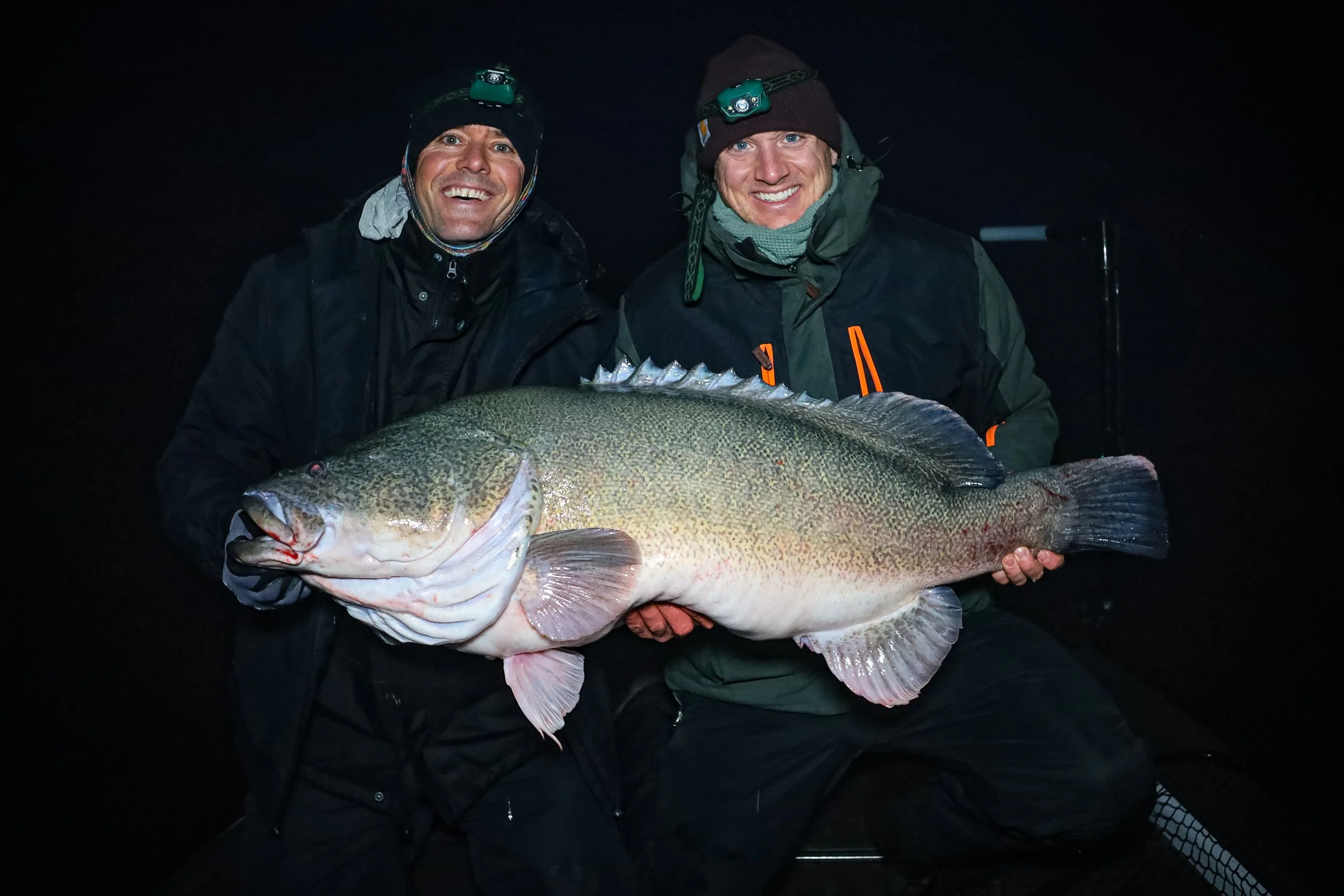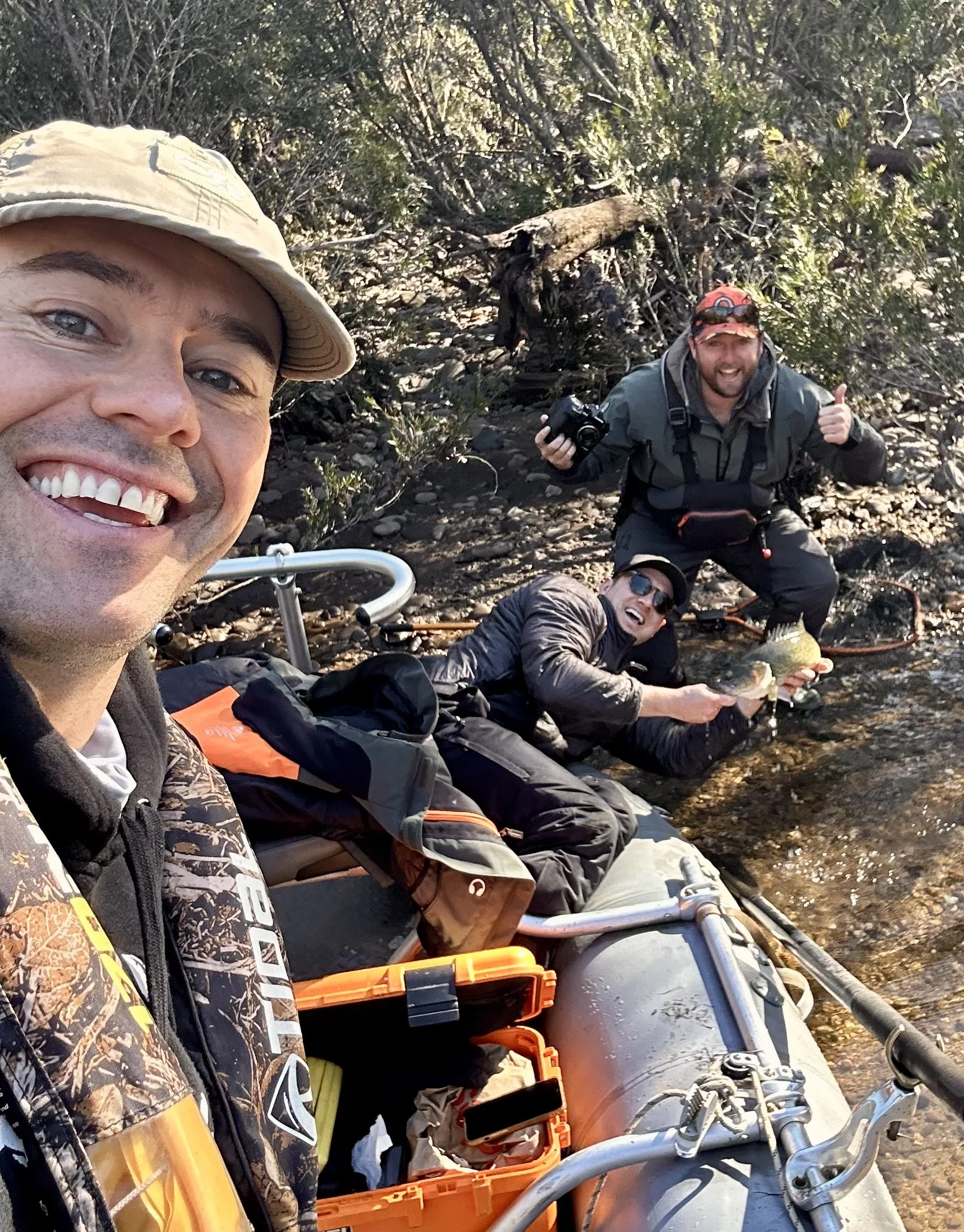Set for Jan 2026: cobia angler workshop to leverage local ecological knowledge for understanding population dynamics.
Part of Kayla Kelley's PhD dissertation, we are excited to begin a collaboration this January with the University of South Alabama, USGS, and Okaloosa County on a cobia angler workshop to leverage local ecological knowledge for understanding population dynamics.
MSc Students, Jones and Keene-Reinhard, awarded NSF S-STEM: Nitrogen Cycle Scholarships
Find more about this award: here.
Whale shark research on NBC: Mutual of Omaha’s Wild Kingdom Protecting the Wild
Our fine-scale disturbance study on whale shark tourism interactions was featured on NBC's Mutual of Omaha’s Wild Kingdom Protecting the Wild. Check out the full episode ‘The Biggest Fish on Earth' here.
Tarpon in Costa Rica: FECOP and BTT on a collaborative research expedition
In October 2024, we partnered with The Costa Rican Federation of Tourist Fishing (FECOP) and the Bonefish and Tarpon Trust (BTT) on a collaborative research expedition focused on tarpon conservation along Costa Rica's northern Caribbean coast. Engaging in discussions and presentations with tarpon anglers and fishing operators was a great experience, highlighting shared conservation goals. We look forward to expanding these collaborative efforts in the future.
Fall 2025 Phd Position in Movement Ecology of Marine Species
PhD Positions (1-2) in Movement Ecology of Marine Species
Integrative Biology Department, University of South Florida
The Griffin Lab at the University of South Florida invites applications for 1-2 PhD positions to explore movement ecology in marine species. In collaboration with Dr. Margaret Lamont (USGS), Research Wildlife Biologist at the Wetland and Aquatic Research Center, students will work with multiple species in Northwest Florida and the greater Gulf of Mexico region. These PhD positions offer opportunities to investigate a variety of ecological questions across species, including sea turtles, cobia, sturgeon, and other species of regional interest.
Potential areas of research could include habitat use, species distribution modeling (SDMs), climate change impacts, and predator-prey relationships, using tools such as mark-and-recapture, satellite telemetry, acoustic telemetry, and AI. Students will have the flexibility to focus on multi-species or species-specific analyses, with the possibility of acquiring additional datasets through collaborations with a broad network of partners.
.
Primary Responsibilities:
● Analyze existing telemetry datasets and explore different research avenues focused on movement ecology. Apply AI for image recognition.
● Investigate topics such as multi-species habitat use, species distribution, and climate change impacts.
● Engage in fieldwork, such as telemetry (acoustic/satellite), nesting surveys, and working with federal and regional collaborators, as relevant to the project.
Qualifications:
● Master’s degree in a related field (e.g., ecology, marine biology, wildlife biology).
● Experience with R and ecological data analyses.
● Interest in marine movement ecology, species conservation, and multispecies research.
Lab & Collaborative Environment:
We are dedicated to fostering a supportive and inclusive environment where individuals from all backgrounds are valued and can thrive. The Griffin Lab offers a highly collaborative setting, with strong partnerships with federal researchers and regional conservation organizations. In collaboration with Dr. Margaret Lamont, who works on a range of species across the region, students will have access to diverse research opportunities and datasets, allowing flexibility to explore various ecological questions across multiple species. PhD students will receive teaching assistantships (TAs) and are encouraged and expected to pursue independent fellowships and funding opportunities. We strive to balance mentorship with independence, creating a lab culture that supports both personal and professional growth within a welcoming, inclusive community.
Department & University:
The positions are based in the Department of Integrative Biology (IB) at USF, a member of the Association of American Universities (AAU). USF is one of only two public universities in Florida in the AAU, reflecting its strong commitment to research excellence. With IB located in Tampa, USF offers an exciting environment for academic research and student life. For more information, visit Griffin Lab and the Department of Integrative Biology (IB.
To Apply: Submit a cover letter, CV, and contact information for three references to Drs. Lucas Griffin at lpgriffin@usf.edu.
Applications will be reviewed on a rolling basis, but a full application must be submitted to USF by November 30, 2025to be eligible for TA support. Submission Portal: here.
For further details, see Dr. Lucas Griffin’s publications and academic contributions on Google Scholar.
Fall 2025 PhD Position in Trophic and Movement Ecology of Atlantic Tarpon
PhD Position in Trophic and Movement Ecology of Atlantic Tarpon – Fall 2025
Integrative Biology Department, University of South Florida
The Griffin Lab at the University of South Florida invites applications for a PhD position to investigate the trophic and movement ecology of Atlantic tarpon, an important recreational game fish. This project will leverage existing stable isotope datasets to understand ontogenetic shifts and changes in freshwater flows on tarpon trophic ecology. In addition, the student will analyze existing acoustic telemetry data, providing insight into tarpon migrations and movement patterns, either in conjunction with stable isotope analysis or as a separate focus.
Primary Responsibilities:
● Analyze existing datasets on tarpon stable isotopes and telemetry.
● Lead additional fieldwork opportunities in collaboration with partners across the Southeastern U.S., where relevant.
● Engage in interdisciplinary research with collaborators.
Qualifications:
● Master’s degree in a related field (e.g., ecology, marine biology, fisheries science).
● Proficiency in R for ecological data analyses.
● A strong interest in stable isotope ecology, acoustic telemetry, recreational fisheries, and stakeholder engagement.
Lab Environment:
We are dedicated to creating a supportive, inclusive environment where individuals from all backgrounds are valued and can thrive. Our lab is highly collaborative, working closely with researchers from universities, non-government organizations, and resource management agencies. PhD students will receive strong mentorship and support, including support from teaching assistantships (TAs), and are encouraged and expected to pursue independent fellowships and funding opportunities. We strive to balance guidance with independence, fostering a lab culture that promotes both personal and professional growth while embracing diversity and inclusion.
Department & University:
The position is based in the Department of Integrative Biology (IB) at USF, a member of the Association of American Universities (AAU). USF is one of only two public universities in Florida in the AAU, reflecting its strong commitment to research excellence. With IB located in Tampa, USF offers an exciting environment for academic research and student life. For more information, visit Griffin Lab and the Department of Integrative Biology (IB.
To Apply: Submit a cover letter, CV, and contact information for three references to Dr. Lucas Griffin at lpgriffin@usf.edu.
Applications will be reviewed on a rolling basis, but a full application must be submitted to USF by November 30, 2024, to be eligible for TA support. Submission Portal: here.
For further details, see Dr. Lucas Griffin’s publications and academic contributions on Google Scholar.
Workshop on Resource Selection Functions with Acoustic Telemetry
It was a great last couple of weeks of conferences at the 2024 American Fisheries Society in Honolulu and the Ocean Tracking Network (OTN) Symposium in Halifax.
As part of OTN’s Symposium, Jonathan Rodemann from Florida International University and I held a workshop for 55 participants on constructing resource selection functions with acoustic telemetry to inform relative habitat selection of aquatic species.
See the workshop homepage and R code: here.


